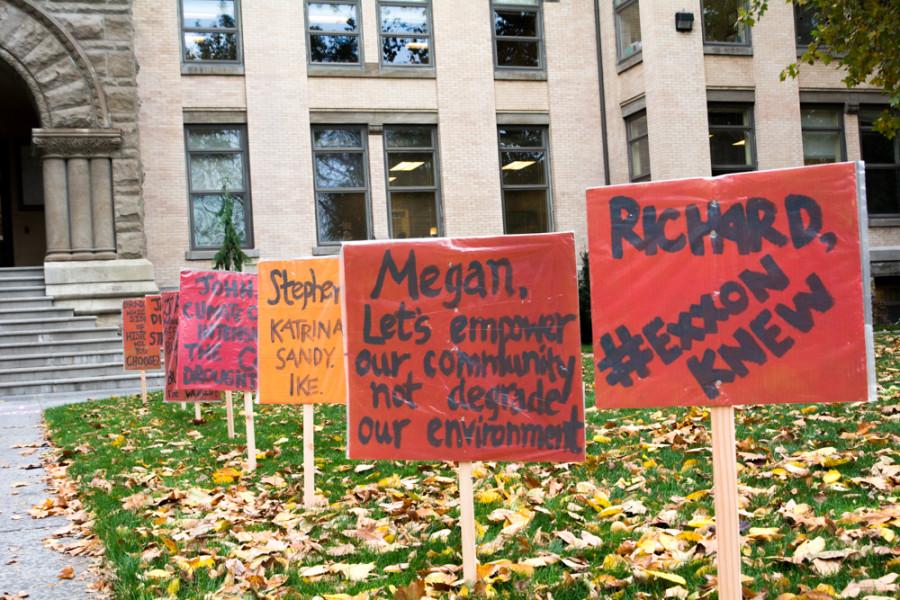That environmental policy is a partisan matter seemed pretty obvious to me. Most people who I’ve talked to also feel this way; the general consensus seems to be that Republicans are less concerned about the protection of the environment than Democrats.
It seemed to be a given throughout this grueling, recently concluded presidential election cycle that the Democrat, Barack Obama, was clearly the favored candidate for environmental groups, while McCain, the Republican, lacked green credentials.
Actually, back in 2003, McCain worked with Democratic Senator Joseph Lieberman (who ran as VP-candidate to Al Gore in 2000) on a bill to impose limits on greenhouse gas emissions. But this kind of work obviously ran contrary to mainstream Republican thought.
In a two-hour speech responding to the bill, Republican Sen. James M. Inhofe of Oklahoma said, “With all of the hysteria, all of the fear, all of the phony science, could it be that man-made global warming is the greatest hoax ever perpetrated on the American people? It sure sounds like it.”
Shortly thereafter, Dr. Roger A. Pielke, the director of the Center for Science and Technology Policy Research at the University of Colorado, commented, “On the climate issue, we appear to be on the brink of having Republican science and Democrat science.”
Where is all of this division coming from? It wasn’t that long ago that Republican and Democratic views on global warming were about the same. According to a recent poll by the Gallup Web site, an almost equal percentage of Republicans and Democrats thought global warming had already begun in 1998.
But the poll also shows that over the last ten years, the gap between Republican and Democratic thought on the matter has dramatically increased. Oddly (but not that oddly), the percentage of Republicans who think global warming is real has not only fallen behind that of Democrats, but it has actually decreased over the last 10 years, as some of the most significant research on the matter has emerged. Just as the problem has become more and more evident, the GOP has become eager to ignore it.
The recent Washington state gubernatorial race, in which Republican Dino Rossi challenged Democrat Christine Gregoire, vividly illustrated this trend toward partisanship in environmental matters. The extremely close race was a replay of the 2004 election, in which Rossi also challenged the incumbent Gregoire.
Washington’s environment certainly dodged a bullet when Gregoire edged out Rossi, who is not sure humans are the cause of global warming. Rossi’s shaky environmental plan consisted primarily of working to reduce traffic congestion, which he believes would lower carbon emissions.
This plan is deceptive, and wouldn’t have really done any good. A recent Seattle Times article pointed out many of its flaws, most notably that “the report his campaign referred to [in making this case] talks about reducing carbon monoxide, which doesn’t contribute nearly as much to global warming as carbon dioxide.”
Rossi’s efforts to reduce traffic congestion might have been helpful to commuters, but it’s really a stretch to say that they’d have reduced carbon emissions substantially: especially taking into consideration that bigger and wider roads would also mean more cars driving on them. If Rossi were to make traffic better, more people would drive, and carbon emissions would actually increase.
It’s no surprise that during both the 2004 and 2008 elections, environmental groups have been much more aligned with Gregoire than Rossi. Many who can see through his newly purchased Hybrid SUV agree that Rossi’s proposed policies don’t really address key issues like climate change.
So, while it’s great for the environment that we elected Gregoire, we have yet to solve the problems with partisanship that plague environmental politics. Concern for the environment, like a host of other issues, is something that really should not be divided down party lines.








